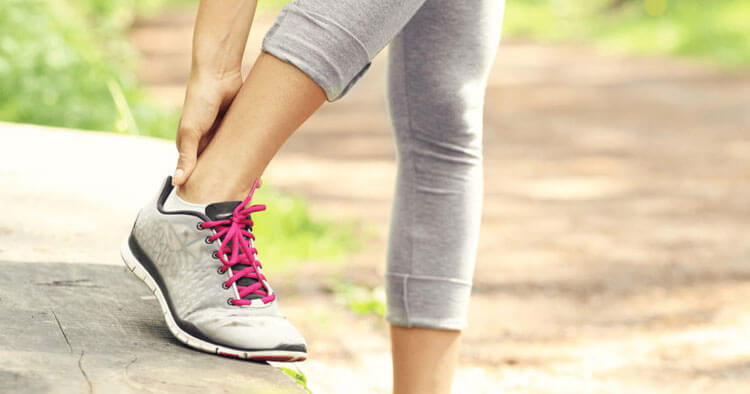Muscle Pain and Tendinopathy
Achilles Tendonitis A Runners Achilles Heel
What Is Achilles Tendonitis?
The Achilles tendon is a long thick tendon at the back of the ankle. The calf muscles feed into the Achilles tendon from around half way down the lower leg and it runs centrally down the back of the leg inserting onto the back of the heel bone. The function of the calf muscles and Achilles tendon unit is that via contraction of the calf muscles the Achilles transmits the generated force on the ankle to point your toes down toward the floor. In walking, running and jumping it is the powerful contraction of the calf muscles and resulting force transmission from the Achilles that allows the explosive push off during these activities, without the Achilles tendon there is no jumping or running.
Achilles tendonitis also referred to as Achilles tendinitis, Achilles tendon pain, Achilles tendinosis, Achilles tendinopathy is a common and frequently chronic condition occurring in relatively frequently (but not exclusively) in sports people and recreational athletes. Specifically Achilles tendonitis is a term that indicates inflammation of the Achilles tendon and is typically an overuse injury, a common condition in runners due to the repetitive overload that occurs with running.
Achilles Tendonitis Verses Achilles Tendinopathy
Achilles Tendinopathy is the medically preferred term when referring to Achilles tendon pathology, as the use of the word tendinopathy which operates as a somewhat blanket term indicates the possibility of there being inflammation, degeneration and micro-tears present. However out of habit Achilles tendonitis is still the name widely used by many practitioners when referring to Achilles tendon pain, physiotherapists and doctors alike frequently refer to it as such because it is what the public are more familiar with as the name for Achilles pathology. The reason that tendinopathy is the preferred term is that research has found that with the majority of Achilles tendon complaints the tendon typically does not present in a state of inflammation, and much Achilles tendon pain is most likely an issue resulting from series of microtears and degeneration of the tendon subsequently referred to as tendinosis.
Causes Of Achilles Tendinopathy
Like a lot of tendon complaints Achilles tendon issues tend to be more common in the over thirties crowd, in particular with regard to the Achilles tendon males over 30 years old are the most prone to getting symptoms. Some common triggers for the onset of Achilles pain in this population I find commonly relate to a change in activity levels and/or behavior including:
- Returning to activity after an extended hiatus
- Overloading physical activity, ramping up training to quickly
- Reduced rest between subsequent loading sessions, allowing little time for recovery between sessions
The above are a few common ways that can lead to tendon overload and the onset of pain or injury through denying the tissue adequate time to recover, repair and adapt.
Other Biomechanical And Training Factors In Achilles Tendon Injury Include:
- A sudden change in training surface (an example of such could include switching from road to sand running, or vice versa).
- Having flat feet, or high foot arches with a tight Achilles tendon
- Having tight hamstrings and calf muscles
- Toe walking/running due to shortened posterior lower limb structures, weak gluteal muscles and hip extensors, altered foot biomechanics…
- Wearing inappropriate footwear for your foot type, chosen activity, or training surface.
Couple any of the above with activities where the sport demands you quickly accelerate, slow down, or pivot. Such as:
- Running
- Gymnastics
- Dance
- Football
- Basketball
- Tennis
And this all paints a recipe for developing a situation of tendon overload and the possible onset of Achilles tendonitis. A physiotherapist will be able to help you identity potential contributing factors regarding the onset of and Achilles tendon pain and then assist in the planning of a treatment approach to get you back on track.
Disclaimer: Sydney Physio Clinic does not endorse any treatments, procedures, products mentioned. This information is provided as an educational service and is not intended to serve as medical advice. Anyone seeking specific orthopaedic advice or assistance on Achilles Tendonitis A Runners Achilles Heel should consult his or her physiotherapist or medical practitioner.


